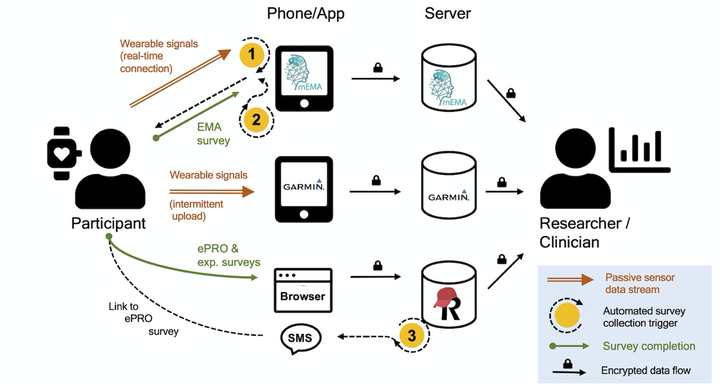Wearable triggered EMAs and ePROs during home-based palliative care (the CASA project)

CASA is a feasibility study to explore the use of wearable sensor-triggered ecological momentary assessments and electronic patient-reported outcomes in a home-based palliative care setting. We collected data from patients and their primary caregivers. As the long-term aspiration is to enable palliative care patients to stay at home longer, we called this study CASA (Continuous Assessment and Support Alerts).
We wrote a blog about our motivation behind CASA and gave a ~30min seminar:
- Blog: Technology keeping palliative care patients at home – the CASA aspiration
- Seminar to Flinders University: Video
The full paper entitled ‘Wearable-triggered ecological momentary assessments are feasible in people with advanced cancer and their family caregivers: Feasibility study from an outpatient palliative care clinic at a cancer centre’ has been published in the Journal of Palliative Medicine in March 2023:
- Pubmed link
- Research Gate (RG) link
- If need a private copy request by RG (preferred) or send me an email
We also published a letter-to-the-editor in the same journal focusing on the sleep aspects.
Building on the CASA feasibility study we are in the process of setting up a study to collect wearable data from patients and caregivers at a much larger scale. We plan to use artificial intelligence (AI) methods to identify “yellow flag” patterns. If successful, we would then test a proactive support intervention triggered by “yellow flags” in a multi-site, randomised trial.
The following figure demonstrates an example “yellow flag” pattern captured from dyad 10. This and all other collected EMA responses can be viewed in an interactive app at https://thiloschuler.shinyapps.io/casa-pilot/. For data privacy reasons a dynamic random time shift is applied.
